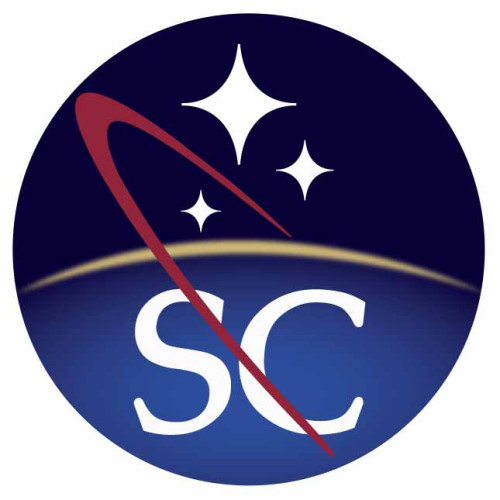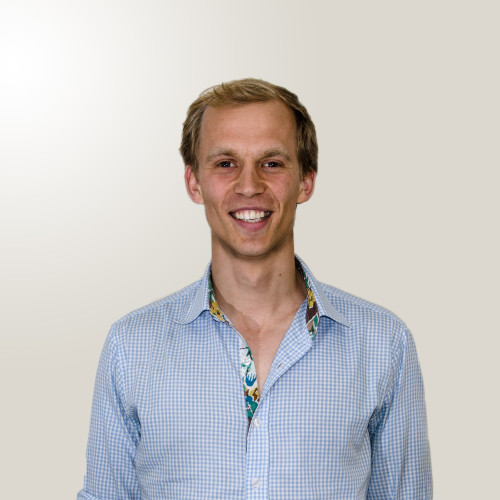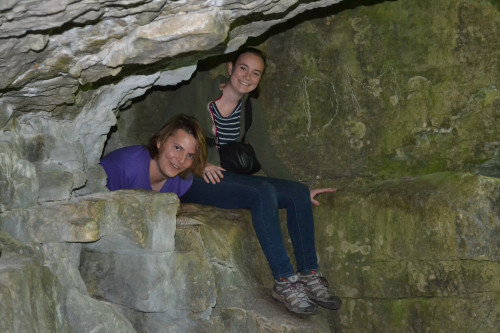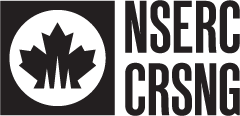Making blog

For a little over the month, 4 members of the various divisions of Space Concordia came together to create this synergy of the Space Cup ™ and the No-Lid & Covered Straw design. Below are the chronicles of the design, manufacturing and decoration process of this cup. Enjoy!

For a little over the month, 4 members of the various divisions of Space Concordia came together to create this synergy of the Space Cup ™ and the No-Lid & Covered Straw design. Below are the chronicles of the design, manufacturing and decoration process of this cup. Enjoy!

Everything is now actualized and we have all the pieces in hand. Assembly went quite smoothly in every fashion,but we had to make a few changes to make sure all was well. Aya and Vidhisha worked hard to meet the deadlines, working day and night to actualize the dream and make our little inventors dream come true with the planets to complete the scenery. Applying some of the rudimentary laws of physics, the team created a handy mechanism to properly have the straw open and close after minutes of pondering with a friend of the Space Concordia team, Muneeb. Finally, the night before shipment, Celeste re-ran over the cup’s design and cleaned up the paint with a steady hand and we finally put our little creation to rest in a box to Ottawa.

Everything is now actualized and we have all the pieces in hand. Assembly went quite smoothly in every fashion,but we had to make a few changes to make sure all was well. Aya and Vidhisha worked hard to meet the deadlines, working day and night to actualize the dream and make our little inventors dream come true with the planets to complete the scenery. Applying some of the rudimentary laws of physics, the team created a handy mechanism to properly have the straw open and close after minutes of pondering with a friend of the Space Concordia team, Muneeb. Finally, the night before shipment, Celeste re-ran over the cup’s design and cleaned up the paint with a steady hand and we finally put our little creation to rest in a box to Ottawa.

Here's a video showing us going from sketch to finished product!

Here are some final photos of the boots in all their glory.
We have now shipped them off to the Canada Aviation and Space Museum in Ottawa to go on display :-)

We now assembled the boots components together to make the finished products.

This is a new skill for me - after working out how to use the sewing machine, I was able to create the insulated walls of the boot using some very snazzy fabric!
The insoles were designed with custom galaxy top layers, and printed using dye sublimation printing.

We have now 3D printed and painted the sole of the boots - the print too about 12 hours, and was then broken out of the powder. The parts were then painted by Chris at our factory in San Diego!

Connor has now gone through the Wiivv app and captured the data of his feet. We used this data to create the boot so that if would fit perfectly to his feet, and our system has also automatically made him a pair of insoles to go in the boots.

It was so much fun working with Connor to create these custom space boots. We explored using some really interesting different technologies, and settled on using 3D printing to create the sole of the boot which Connor had designed.
We have now worked out how each bit will be made, how they will fit together, and what they will look like!

Everything is now actualized and we have all the pieces in hand. Assembly went quite smoothly in every fashion,but we had to make a few changes to make sure all was well. Aya and Vidhisha worked hard to meet the deadlines, working day and night to actualize the dream and make our little inventors dream come true with the planets to complete the scenery. Applying some of the rudimentary laws of physics, the team created a handy mechanism to properly have the straw open and close after minutes of pondering with a friend of the Space Concordia team, Muneeb. Finally, the night before shipment, Celeste re-ran over the cup’s design and cleaned up the paint with a steady hand and we finally put our little creation to rest in a box to Ottawa.

Everything is now actualized and we have all the pieces in hand. Assembly went quite smoothly in every fashion,but we had to make a few changes to make sure all was well. Aya and Vidhisha worked hard to meet the deadlines, working day and night to actualize the dream and make our little inventors dream come true with the planets to complete the scenery. Applying some of the rudimentary laws of physics, the team created a handy mechanism to properly have the straw open and close after minutes of pondering with a friend of the Space Concordia team, Muneeb. Finally, the night before shipment, Celeste re-ran over the cup’s design and cleaned up the paint with a steady hand and we finally put our little creation to rest in a box to Ottawa.

It's time to deliver the final deeper sleeper machine! See you soon at the Canadian Space and Aviation Museum!

Now that the deeper sleeper machine is all assembled it's time to see how it works. We made an app that connects to the headband via Bluetooth to measure how well you are sleeping. Here are some pictures of Rob wearing the deeper sleeper machine and the app that goes along with it. Also a graph of brain activity that we recorded!
We are using alpha waves (awake brain waves) and delta waves (deep sleep brain waves) to figure out sleep quality. The brain image on the app changes from red (off) to green (awake) to blue (asleep). The circuit box is comically large but this is just the first prototype, so it would be optimized to be much smaller (and more comfortable) for future iterations.

The headband is knitted and the circuit is soldered together, now it's time to assemble! We designed a 3D printed box to house the circuit, batteries, and microcontroller. The box was attached to the headband and the components inserted into the box.

Once the meeting for finalizing dimensions was concluded, Vidhisha hit the ground running by running around Montreal from store to store grabbing paint, styrofoam balls and everything in between to allow the creation to be the best it could be.
On the technical side, Jiyeon and Aya kept busy by creating the CADs (Computer Aided Drawing). CADs are essentially a 2D or 3D drawing that comes to life and is the step in between the paper drawing and a physical object.
Unfortunately, the 3D printer that the team was working with crashed a few times delaying the production a bit with our cup body and lid. Since the library technology sandbox was closing for the long weekend,we would have to wait until Tuesday to print our parts. We then decided to order some translucent filament online and it finally arrived on Saturday afternoon. Then,we got to finish our print at the SpaceLab which is opened 7 days a week. Once the cup was done printing,we started printing our last part,the lid. After four days of hard work in the lab, we can say that we finally have something tangible and it was beautiful seeing the process of our creation come to life. Now that we have all our parts in hand, we just need to work, work, work to have everything prepared to send to Ottawa and allow our Little Inventors to see their cup and straw in action.

Once the meeting for finalizing dimensions was concluded, Vidhisha hit the ground running by running around Montreal from store to store grabbing paint, styrofoam balls and everything in between to allow the creation to be the best it could be.
On the technical side, Jiyeon and Aya kept busy by creating the CADs (Computer Aided Drawing). CADs are essentially a 2D or 3D drawing that comes to life and is the step in between the paper drawing and a physical object.
Unfortunately, the 3D printer that the team was working with crashed a few times delaying the production a bit with our cup body and lid. Since the library technology sandbox was closing for the long weekend,we would have to wait until Tuesday to print our parts. We then decided to order some translucent filament online and it finally arrived on Saturday afternoon. Then,we got to finish our print at the SpaceLab which is opened 7 days a week. Once the cup was done printing,we started printing our last part,the lid. After four days of hard work in the lab, we can say that we finally have something tangible and it was beautiful seeing the process of our creation come to life. Now that we have all our parts in hand, we just need to work, work, work to have everything prepared to send to Ottawa and allow our Little Inventors to see their cup and straw in action.

Picture 1: Parts have arrived! Time to start construction of the final circuit.
Picture 2 and 3: First is the “instrumentation amplifier” which takes two signals and subtracts them. The signal from the middle of the brain is just background noise and doesn’t contain much useful information, so if we subtract the signal from one hemisphere from the signal in the middle of the brain we isolate the brain waves!
Picture 4 and 5: Lots more added now! All of the op-amps (the big triangles in the circuit drawing) are all inside the new chip in the middle of the board to save on space. The filters isolate the frequency range of the brain waves, and the conditioning circuit makes the signal compatible with the computer controlling the whole system.
Picture 6: The brains of the operation! This is the microcontroller (a little computer) that runs the show. It has Bluetooth on it so it can talk to your phone.
Picture 7: Final version of the circuit all soldered together and ready to go with the electrodes. The electrodes have a conductive gel on them to get the electricity from your skin.

After receiving some feedback from the Canadian Space Agency about the International Space Station and how liquids behave in space,we realized that the design will need some changes.
Our team decide to meet again and we talked about how we can add these important elements to our design. For example,the International Space Station there are many velcro patches on surfaces,thus we decided to keep the look of the suction cup from Space Cup™,but will be adding a velcro sticker underneath. The second issue was that liquids tend to become globs in space,so to deal with that,we decided to 3D print the cup,using a translucent PLA filament,so that the astronaut will be able to see through the cup and stick their straw in the glob. After we figured out how to deal with these different issues,we agreed on a final design and drew it out. Then,measuring different objects around us,like plastic cups and water bottles,we added dimensions to our design. Now,we are all set to make this real!
